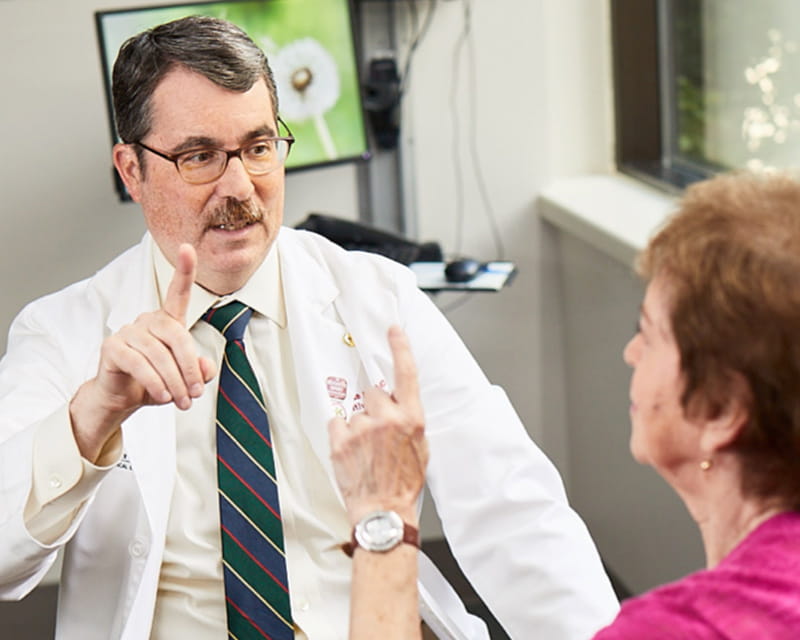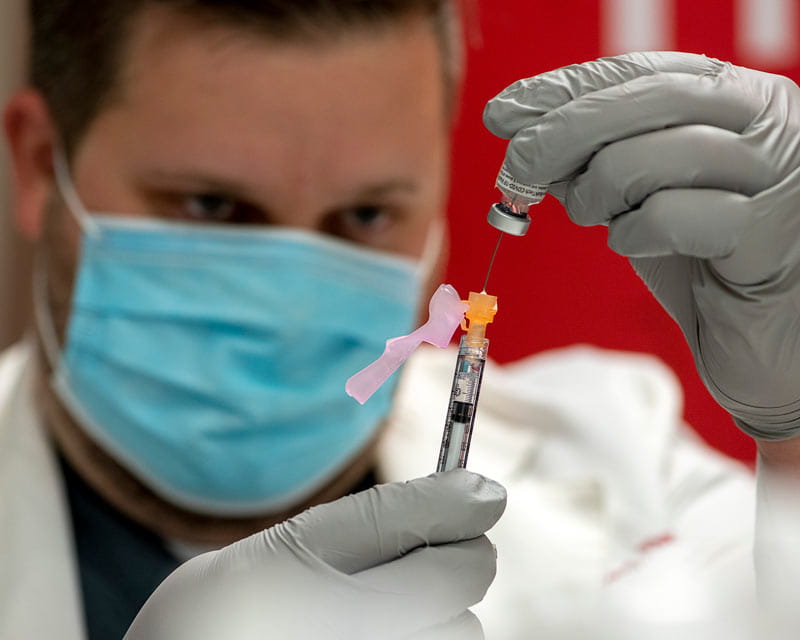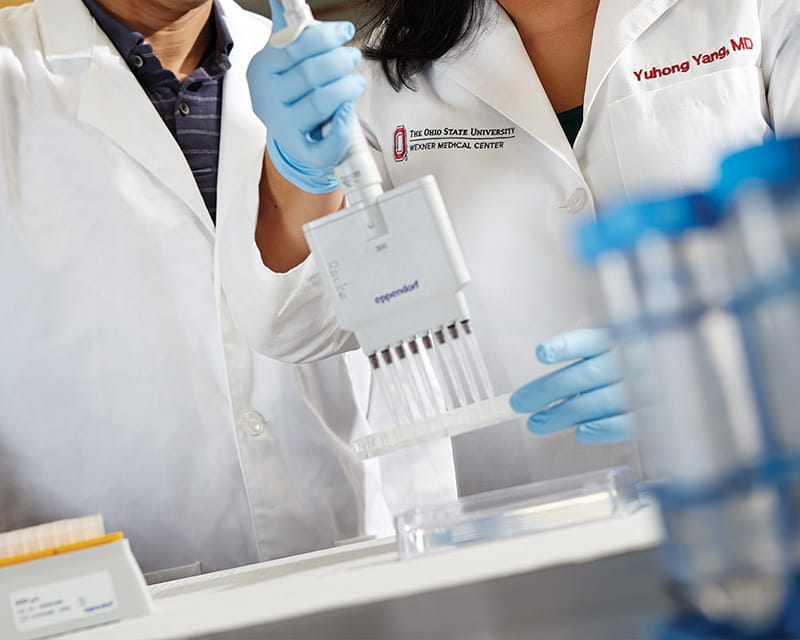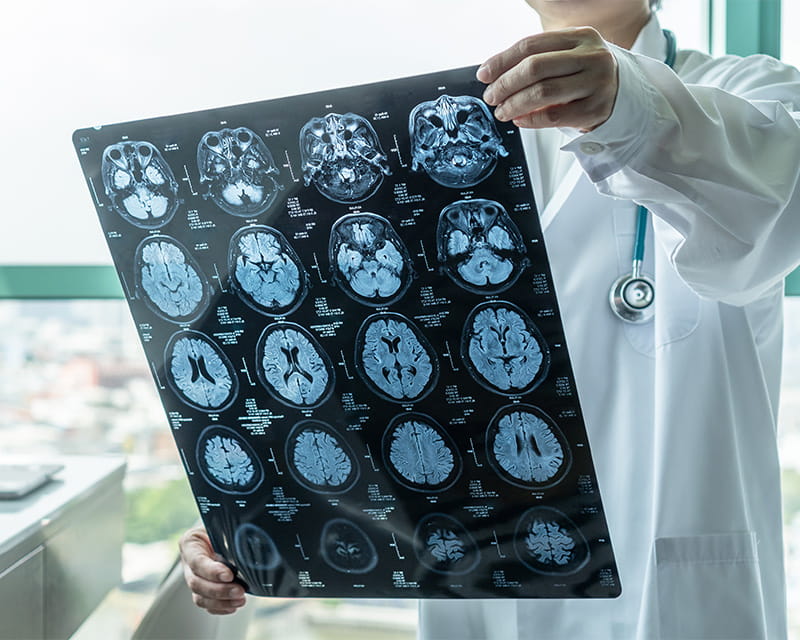
Ohio State researchers identify new biomarkers that differentiate Lewy body dementia from Alzheimer’s and Parkinson’s
 Ohio State University Wexner Medical Center clinical trial tracks neutralizing antibody levels in MS patients who receive COVID-19 vaccine
Ohio State University Wexner Medical Center clinical trial tracks neutralizing antibody levels in MS patients who receive COVID-19 vaccineMost patients with multiple sclerosis (MS) who receive a COVID-19 vaccine respond as any healthy person does. These patients did not experience any major side effects and developed immunity to COVID-19.
Those are the positive, but preliminary results from a clinical trial underway at The Ohio State University Wexner Medical Center.
However, a subset of multiple sclerosis patients in the study did show a reduced response to the vaccine. These patients were taking a disease-modifying therapy (DMT) that reduces the risk of MS attacks by depleting their B cells. These DMTs included rituximab and ocrelizumab.
“There may be differences among patients with MS, depending on their treatment, in how they respond to the COVID-19 vaccine,” says Tirisham Gyang, MD, a neurologist at the Ohio State Wexner Medical Center and program director of the Multiple Sclerosis Fellowship at The Ohio State University College of Medicine.
Patients who take ocrelizumab or rituximab did not develop a high level of antibodies to fight COVID-19 after getting the vaccine.
As an autoimmune disease affecting the central nervous system, MS has many treatments that suppress patients’ immune systems. These treatments can affect how a patient responds to an infection or vaccine.
The onset of COVID-19 provided a unique opportunity for researchers at the Ohio State Wexner Medical Center to study how such a virus affects people with an autoimmune condition.
“mRNA vaccines are being used on a mass scale for the first time in history, and we decided to study how having MS or being on a DMT for MS could affect a person’s immune response to the vaccine,” Dr. Gyang says.
Doctors, researchers and scientists at Ohio State already were collecting biological samples to study the effects of COVID-19 on patients with MS and other neurological disorders.
This vaccine study is a collaboration with Shan-Lu Liu, MD, PhD, co-director of the Viruses and Emerging Pathogens Program in Ohio State's Infectious Diseases Institute and an investigator in the Center for Retrovirus Research.
Dr. Liu’s lab created a way to track the specific spike protein antibody that blocks infection of cells by the SARS-CoV-2 virus. This is the most important antibody for protection against COVID-19 and is dubbed the “neutralizing antibody.”
About 80 people are enrolled in the MS and COVID-19 vaccine study.
Dr. Liu’s unique assay examines which antibodies in the blood block the virus from entering the body’s cells to replicate and cause damage.
Here’s how the clinical trial works:
With every blood draw, Dr. Liu’s assay checks each patient for their specific level of neutralizing antibodies against the SARS-CoV-2 spike protein.
Early data show that in receiving the COVID-19 vaccine:
Researchers also are analyzing the relationship between when a patient receives the COVID-19 vaccine and when they get their DMT treatment. The timing of each treatment could be a contributing factor to the level of antibodies a person develops.
“We hope the data will provide guidance as to the best time to take the vaccine — before, after or during a DMT infusion course,” Dr. Gyang says.
Dr. Gyang and Dr. Liu and their teams will investigate how anti-COVID-19 neutralizing antibody levels may drop or change over time based on a patient’s DMT treatments.
“This data can give more personalized care recommendations to MS patients, specifically those on therapies that impair the response to the vaccine,” Dr. Gyang says.
Her eventual hope is that this clinical trial provides insight into a vaccine response for other patients with other autoimmune conditions or those taking treatments like DMTs. This includes patients with blood cancers and rheumatoid arthritis.
Dr. Gyang and her team hope to continue this study for at least one year and will also be studying how patients respond to the COVID-19 vaccine booster, which has been approved for patients on immune suppressive treatments.
“We are curious to see if the booster shot leads to a greater antibody response,” she says. “The more data we collect, the more inferences we can make.”
The Ohio State team expects to finalize its preliminary data and publish its findings soon. Based on study results so far, as well as extensive clinical data in hand for study participants, vaccine guidance currently includes that:
“We did not find any adverse effects or relapses or other specific complications in the patients we studied,” Dr. Gyang says.
The MS and COVID-19 vaccine study coincides with other research about MS patients and COVID-19.
Benjamin Segal, MD, co-director of the Neurological Institute at the Ohio State Wexner Medical Center, says many questions remain about the potential impact of COVID-19 on MS.
A primary concern is how the DMTs used to treat MS — designed to suppress the immune system — may increase the risk of serious complications once a patient is infected with COVID-19.
Dr. Segal says study results are mixed. For example:
These studies, plus the vaccine clinical trial that tracks neutralizing antibodies now underway at Ohio State illustrate show why more data is needed, Dr. Gyang and Dr. Segal say.

Ohio State researchers identify new biomarkers that differentiate Lewy body dementia from Alzheimer’s and Parkinson’s

Biomarker breakthroughs at Ohio State transform disease diagnosis, predictability and treatment

The Ohio State University Wexner Medical Center pushes boundaries for neurological care